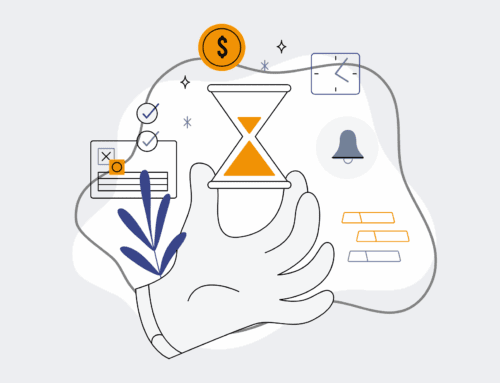Revolutionizing Recruitment: Leveraging AI Resume Analysis for Precision Job Matching
The modern hiring landscape is a battleground for talent, where speed, accuracy, and efficiency dictate success. Yet, many organizations still grapple with outdated, manual processes for sifting through vast quantities of resumes, leading to missed opportunities, prolonged hiring cycles, and ultimately, misaligned hires. The core challenge often lies not in the volume of applications, but in the precision of matching those applications to the nuanced demands of a job description. Traditional keyword matching is a blunt instrument in a world requiring surgical accuracy. This is where AI resume analysis emerges as a transformative force, enabling businesses to move beyond rudimentary filtering to achieve unparalleled job description matching.
At 4Spot Consulting, we understand that recruiting is more than just filling a seat; it’s about strategically placing the right talent to drive business outcomes. We’ve witnessed firsthand the inefficiencies born from subjective reviews and limited keyword searches. Imagine a scenario where a perfectly qualified candidate is overlooked because their resume uses synonyms or descriptions that don’t precisely match the job description’s rigid language. This isn’t just a hypothetical; it’s a daily reality for many HR and recruiting teams. The human element, while invaluable in final decision-making, becomes a bottleneck in the initial screening phase, especially when faced with hundreds or thousands of applications.
The promise of AI resume analysis extends far beyond simple text parsing. Advanced AI models, leveraging natural language processing (NLP) and machine learning, can analyze resumes not just for keywords, but for context, intent, and relevance. They can understand the semantic meaning behind skills, experiences, and qualifications, comparing them against the intricate requirements outlined in a job description. This means moving past a simple check for “project management” to understanding if a candidate’s experience aligns with Agile methodologies, large-scale infrastructure projects, or cross-functional team leadership, even if those exact phrases aren’t explicitly listed. The AI acts as an intelligent interpreter, bridging the gap between how a candidate describes their experience and how a company defines its needs.
Beyond Keywords: Understanding Context and Competencies
What truly differentiates AI-driven matching is its ability to extract and infer competencies and soft skills, often hidden within the narrative of a resume. While a job description might call for “strong leadership” or “problem-solving,” candidates rarely enumerate these as bullet points. AI can identify instances where a candidate has led initiatives, resolved complex issues, or driven team success, correlating these achievements with the desired competencies. This contextual understanding ensures that the assessment of a candidate’s fit is holistic and data-driven, rather than relying solely on explicit declarations. It turns the resume from a flat document into a dynamic profile understood in relation to the role’s true demands.
Furthermore, AI resume analysis can standardize and normalize data across diverse resume formats, overcoming the challenges posed by varied templates and personal branding choices. This creates a level playing field, ensuring that valuable candidates aren’t disadvantaged by formatting eccentricities. For high-growth B2B companies, this level of automation is not a luxury, but a necessity for scaling their recruiting operations without proportionally increasing headcount in their HR departments. It frees up recruiters to focus on what they do best: engaging with top talent, building relationships, and making strategic hiring decisions, rather than spending countless hours on manual data entry and initial screening.
Transforming the Candidate Experience and Employer Brand
Implementing AI for job description matching isn’t just about internal efficiency; it profoundly impacts the candidate experience. Candidates often express frustration over applying to numerous positions and never hearing back, or feeling that their application wasn’t genuinely considered. With AI analysis, the initial screening can be significantly faster and more accurate, ensuring that qualified candidates are moved forward swiftly. This agility not only improves the perception of the employer as innovative and efficient but also reduces the risk of losing top talent to competitors who offer a more streamlined process. A positive candidate experience, especially at the initial touchpoints, contributes directly to a strong employer brand.
For organizations leveraging tools like Keap or other CRMs, integrating AI resume analysis directly into their talent acquisition workflow can create a powerful “single source of truth.” As resumes are parsed, critical data points – skills, experience, education, previous roles – are automatically extracted and mapped to custom fields within the CRM. This rich, structured data then becomes immediately available for advanced searching, analytics, and targeted outreach for future roles. This integration is a cornerstone of the OpsMesh framework, where seamless data flow eliminates manual tasks, reduces human error, and ensures that every piece of candidate information is actionable and secure. It turns a manual, fragmented process into a cohesive, intelligent system that consistently delivers better hiring outcomes.
The Path Forward: Strategic AI Integration
The adoption of AI in recruiting is no longer a futuristic concept; it is a current imperative for companies aiming to outpace their competition. However, successful integration requires a strategic approach, not just the purchase of off-the-shelf software. At 4Spot Consulting, our OpsMap™ diagnostic is designed to identify the precise points in your HR and recruiting workflow where AI and automation can deliver the most significant ROI. We don’t just recommend technology; we design bespoke solutions that integrate seamlessly with your existing systems, ensuring that AI enhances human capabilities, rather than replacing them indiscriminately.
By embracing AI resume analysis for superior job description matching, organizations can significantly cut time-to-hire, improve the quality of candidates presented to hiring managers, and reduce overall recruitment costs. It’s about building a more intelligent, resilient, and scalable recruiting engine that consistently delivers the talent needed to achieve ambitious business goals. Don’t let valuable candidates slip through the cracks due to antiquated processes. The future of recruiting is precise, proactive, and powered by intelligent automation.
If you would like to read more, we recommend this article: Field-by-Field Change History: Unlocking Unbreakable HR & Recruiting CRM Data Integrity









